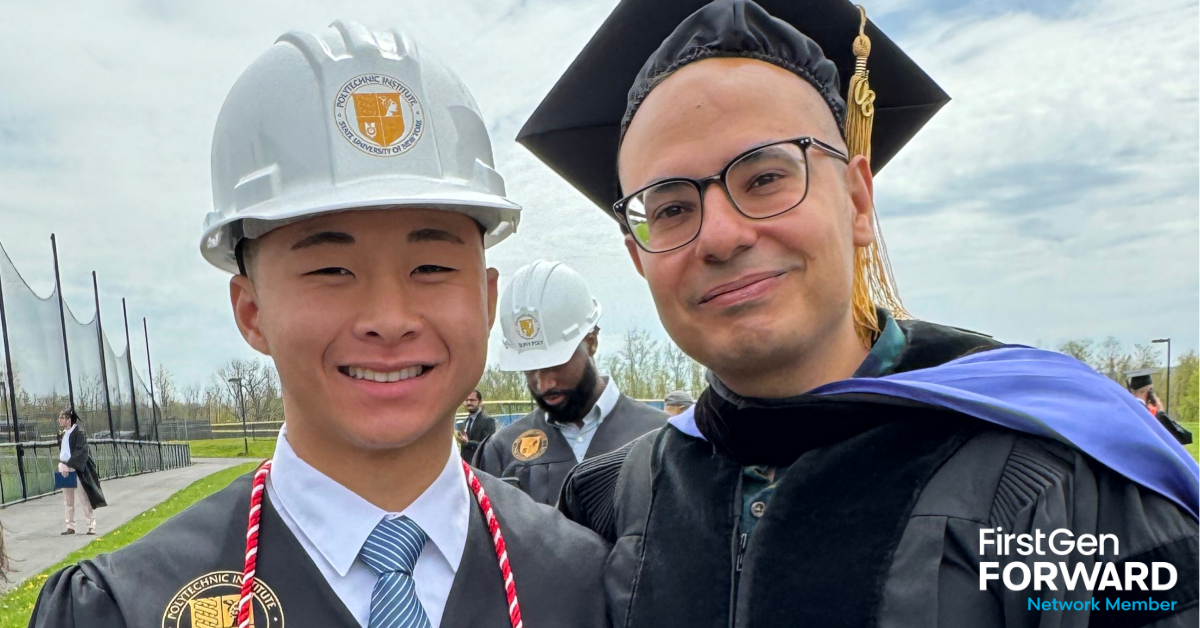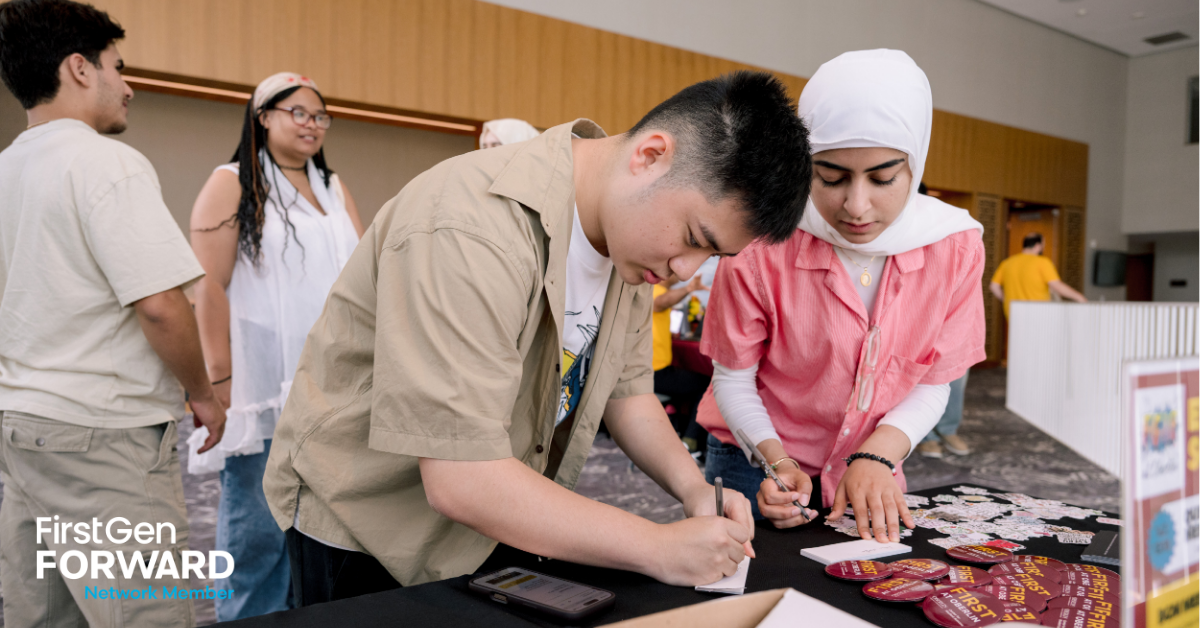Data informs us that the percentage of first-generation college students who persist, are retained, and complete their college degree increases when they receive intentional, tailored academic and social support. To enable us (Dr. Ann Smith, Asst. Dean of Student Success; Dr. Jennifer Hanifl, Director of Trio SSS; Michelle Boike, Assistant Dean and Director of Center for Intercultural Engagement and Support; and Jake Dyer, Director of Student Activities and Leadership) to begin our programming efforts, we first need the Cabinet to approve our expanded definition of first-generation college student, to clarify to the student body who qualifies to be an integral part of what we are calling the First Gen Support Network.
First-generation students often face unique challenges in navigating the college experience, and research consistently shows that they persist and graduate at higher rates when provided with tailored academic and social support. These students benefit greatly from a strong sense of community, mentorship, and access to resources that help them bridge the gap between their home experiences and the expectations of higher education. At Luther College, 20.3% (259 students) identify as first-generation; however, only 54 of them (20.8%) receive support through TRIO Student Support Services (SSS) due to federal restrictions (Office of Institutional Research [IR], 2025). This limited access contributes to a retention gap, as only 65.3% of first-gen students from the Fall 2020 cohort were retained over four years compared to 77.3% of non-first-gen students (IR, 2024). In accordance with the U.S. Department of Education (n.d.), a First-generation college student can be defined as “neither parent/guardian has earned a bachelor’s degree from a four-year institution”. We, the Co-chairs of the First Gen Support Network at Luther College, aim to expand that definition and services, to enable Luther to serve all first-gens, beyond the scope of what is allowable by the federal government with TRIO SSS.

While the current federal definition captures many students, it overlooks others who experience similar barriers to success. To bridge this gap beyond the current federal TRIO SSS criteria, we propose that the expanded definition include circumstances that determine a Luther College student to be considered a first-generation college student beyond the U.S. Department of Education definition. These circumstances include:
- International Students who identify as first-gen;
- Students whose parents'/guardians’ degrees were acquired outside of, but not recognized in the U.S;
- Foster/adopted students (age 15+) whose guardians lack a bachelor’s degree;
- Legally independent students (since age 15), regardless of parents’/guardians’ education; and
- Students estranged from biological parents with degrees but no relationship.
Clarifying these expanded circumstances will allow the Office of Student Success to better identify and support first-gen students through a broader First Gen Support Network. This initiative will not alter Luther’s Institutional Research (IR) definition, which remains aligned with federal guidelines, but will provide additional resources to students who meet the broader criteria. By formally expanding the definition, Luther College can strengthen first-gen programming, reinforce its commitment to diversity and equity, and advance the strategic goals of expanding reach, strengthening organizational support, and aligning institutional resources. Approval of this definition will enable the launch of targeted retention strategies, as well as fostering a sense of community, and ensuring that first-generation college students thrive at Luther College and beyond.
Citations
Office of Institutional Research. (2025). Luther College.
Office of Institutional Research. (2024). Luther College.
U.S. Department of Education. (n.d.). Higher Education Act - Federal TRIO Programs. https://www.ed.gov/media/document/trio-hea-36584.pdf
For more information on Luther College's approach, please visit their website here.


